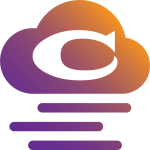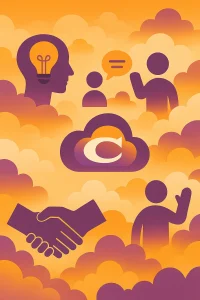Why Soft Skills Matter More in Remote Work
In a remote setting, technical skills are essential—but soft skills are what keep teams aligned and moving. Without face-to-face interaction, hiring managers put extra weight on how well you communicate, manage time, and collaborate asynchronously. These human-centered abilities help remote pros build trust, navigate ambiguity, and stay productive without constant oversight.
As covered in our guide on advancing your remote career, emotional intelligence and self-driven habits are now considered just as vital as certifications. And if you’re aiming for top-tier roles, expect employers to assess how you communicate and self-manage—often before your hard skills even come into play.
Mastering Remote Communication
Remote teams thrive on written and asynchronous communication. These aren’t just helpful—they’re foundational. How clearly you write impacts everything from project momentum to morale.
Features
Write short, clear messages that get to the point fast.
Break up text with headers, bullets, and white space.
Always give background—don’t assume others know the details.
End with next steps or questions to keep things moving.
Use emojis or softening phrases to avoid sounding blunt.
Add relevant links so teammates can act without asking.
Whether you’re messaging in Slack, drafting SOPs, or sending a client update, clarity and tone matter. Great async communication also means fewer bottlenecks. Organize your messages with bullet points, link relevant files, and clarify next steps. Small things reduce confusion across time zones.
To see how this plays out, compare expectations in a remote vs office job. Remote-first teams rely heavily on trust and documentation. And your setup matters—check our remote office guide for tools that support clearer, faster writing.
Proactive Communication Habits
Silence isn’t golden in remote teams—it’s unclear. That’s why proactive communication is one of the most valued soft skills. It means giving updates before they’re asked for, calling out blockers early, and looping in the right teammates at the right time.
A product manager sends a Friday wrap-up via Slack, summarizing team progress and next steps. This builds visibility and saves time during Monday standups.
Short updates, check-ins, and shared project boards can prevent slowdowns. This level of initiative builds trust and speeds up decisions. Learn what else remote recruiters prioritize—many soft skills tie directly to hiring outcomes.
A freelance developer sends a Loom video when handing off a project. Walking the client through code updates reduces email back-and-forth and improves handover clarity.
If you’re just starting out, our Remote Work Basics hub shows how to shift from reactive to proactive habits—without overthinking it.
Time Management & Self-Discipline
Without a manager nearby, remote work demands internal discipline. Time management isn’t just about productivity—it’s about trust. Can you hit deadlines? Can teammates rely on your availability? These signals matter more than clocking hours.
Features
Structure your day with start/stop times and clear task priorities.
Use Pomodoro or time-blocking to reduce distractions.
Track outcomes, not hours. Use tools to measure weekly progress.
Pair up with a colleague for weekly goals and follow-ups.
Avoid burnout by building recharge time into your calendar.
Batch similar tasks to keep cognitive load low and focus high.
Consistency beats complexity. Even small rituals—like prepping tomorrow’s tasks at the end of today—help you stay grounded and deliver on time. These are the habits that signal reliability to any remote employer.
Remote Collaboration & Digital Etiquette
Remote collaboration isn’t about talking more—it’s about communicating with purpose. Strong teams share context, not just comments. That means updating tools, tagging selectively, and closing feedback loops clearly.
Etiquette isn’t fluff—it’s function. From muting yourself to documenting decisions, these habits create clarity across time zones. They also prevent the digital version of “too many meetings.”
Features
Use @mentions with intention to avoid noise and reduce ping fatigue.
Share progress in tools, not just messages—visibility helps everyone.
Capture key takeaways after calls or project huddles.
Use async-first tools and staggered deadlines.
It’s the smallest habit with the biggest etiquette impact.
Always respond once an issue is resolved—don’t leave people hanging.
Collaboration also includes client experience. In distributed work, credibility can hinge on how well you protect sensitive information. Our client data guide outlines key dos and don’ts that help remote professionals build trust at every touchpoint.
Emotional Intelligence & Interpersonal Skills
In remote work, tone becomes your body language. Emotional intelligence helps you communicate empathy, urgency, or disagreement—without needing to be in the same room. It also helps you read between the lines when teammates go quiet or disengage.
People will forget what you said, people will forget what you did, but people will never forget how you made them feel.
Maya Angelou – Poet and Civil Rights Activist
Remote pros listen closely. They notice who hasn’t spoken, respond thoughtfully, and foster psychological safety. These micro-skills aren’t always listed in job ads—but they’re what make teams work.
Want more context? Our Remote Lifestyle series explores emotional self-awareness and relationship-building across time zones. Or start with our Beginner’s Guide to build healthy communication habits from day one.
How to Show These Soft Skills on Your Resume
Remote hiring managers don’t want buzzwords—they want proof. So skip vague claims like “great communicator” and show how you actually collaborated, adapted, or led in a distributed environment.
Use bullet points that highlight remote outcomes and habits. For example: “Led async launch for global client team using Notion and Loom.” That line shows soft skills, tools, and ownership—all at once.
Features
Start with outcomes—what you achieved, not just what you did.
Mention remote tools like Loom, Trello, or ClickUp where relevant.
Highlight times you owned a process or solved a problem solo.
Use phrases like 'trusted to lead' or 'owner of client delivery.'
Blend soft skills into hard data—not as a separate list.
Scan the job post and reflect their keywords and values.
Need help with formatting or phrasing? Our full remote resume guide has examples and layouts built for distributed teams.
Demonstrating Soft Skills in Interviews for Remote Jobs
Soft skills are the subtext of remote interviews. When a hiring manager asks how you handle missed deadlines or tricky feedback, they’re not just testing behavior—they’re testing alignment.
Be specific. Talk about how you clarify priorities, prep agendas, or follow up with async updates. These small behaviors show how you lead and adapt without direct oversight.
During a remote interview, a candidate shared how they ran a virtual kickoff using Notion and async video updates—demonstrating leadership and communication without saying the words.
If you’re aiming for senior roles, the top remote jobs guide outlines what top-tier employers expect—hint: communication and proactivity are non-negotiable.
FAQs: Soft Skills in Remote Interviews
Final Checklist: Are You Remote-Ready?
Before you send that next application, run through this soft skills checklist. These aren’t just nice-to-have—they’re your edge in distributed teams.
Features
You write and speak with intention—especially in async settings.
You don’t wait for tasks. You update, document, and anticipate needs.
You balance autonomy and accountability across your week.
You know how to work across tools, time zones, and personalities.
You notice tone, read the room (even on Zoom), and adapt quickly.
Your resume and interviews include real, recent proof of these skills.
- Get a Remote Job – No Experience Needed
- Async vs real-time remote
- ATS Keyword Strategy
- Top Soft Skills for Remote Jobs
- Office vs Remote Job Skills | What Really Changes
- What Remote Recruiters Look For
- Remote Resume Revamp | How to Tailor Your Resume for Remote Roles
- Top Remote Jobs That Pay Well in 2025
- How to Work Remotely While Traveling (Digital Nomad Edition)

